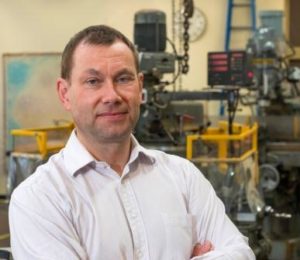The future of work in Australia is placed under the microscope by leading Australian academics in an incisive new book that paints a realistic picture about the challenges and opportunities presented by new technologies.
Led by Flinders University and other academics, The Future of Work and Technology: Global Trends, Challenges and Policies with an Australian Perspective, published by Routledge this month, outlines how our work is changing and will continue to change as AI matures and penetrates all aspect of human activity.

Contributing authors to the book underline that using smart(er) machines will not mean the end-of-work – and they say there’s no precedent to suggest that might be the case.
However, they also emphasise that socially and economically equitable use and impact of adopting smart machines remain significant challenges.
“This book examines how global technological advances shape the way we work and allocate work today and how we might do so in the future, by exploring advances in robotics, artificial intelligence, green technology and implications for workforce skills and future welfare,” says Dr Andreas Cebulla, Associate Professor in The Future of Work based at the (AITI) at Flinders University
Dr Cebulla, who edited the book and also contributes to the book’s 11 chapters, says the contributing authors’ combined knowledge as engineers, data scientists, economists and sociologists provides a balanced examination of how we will work in the future. Flinders University authors include Hamish Gamble, Dr Sara Howard, Dr Valerie O’Keeffe and others.
“Making and using new, innovate, safe, technologically advanced products and tools, and greening the economy are opportunities in Australia – but realising those opportunities require purposeful policy direction and would benefit from open, radical thinking, because current thinking and policies aren’t quite right yet.”
Dr Cebulla says the current uses of advanced technology lag behind its already existing capability – and that the new book is important for noting the potential future application of technology and the economic, social and workplace implications of technological change.
“The risks of using smart(er) machines are reasonably well understood, and democratic strategies for their risk management are available, but it is quickly evolving and must be monitored closely by research.”
Through using Australia as a case study, the book contrasts this country’s experience to those elsewhere, providing a better understanding of what work might look like in the future and how we might prepare for likely changes.
More details about the book can be found here:








